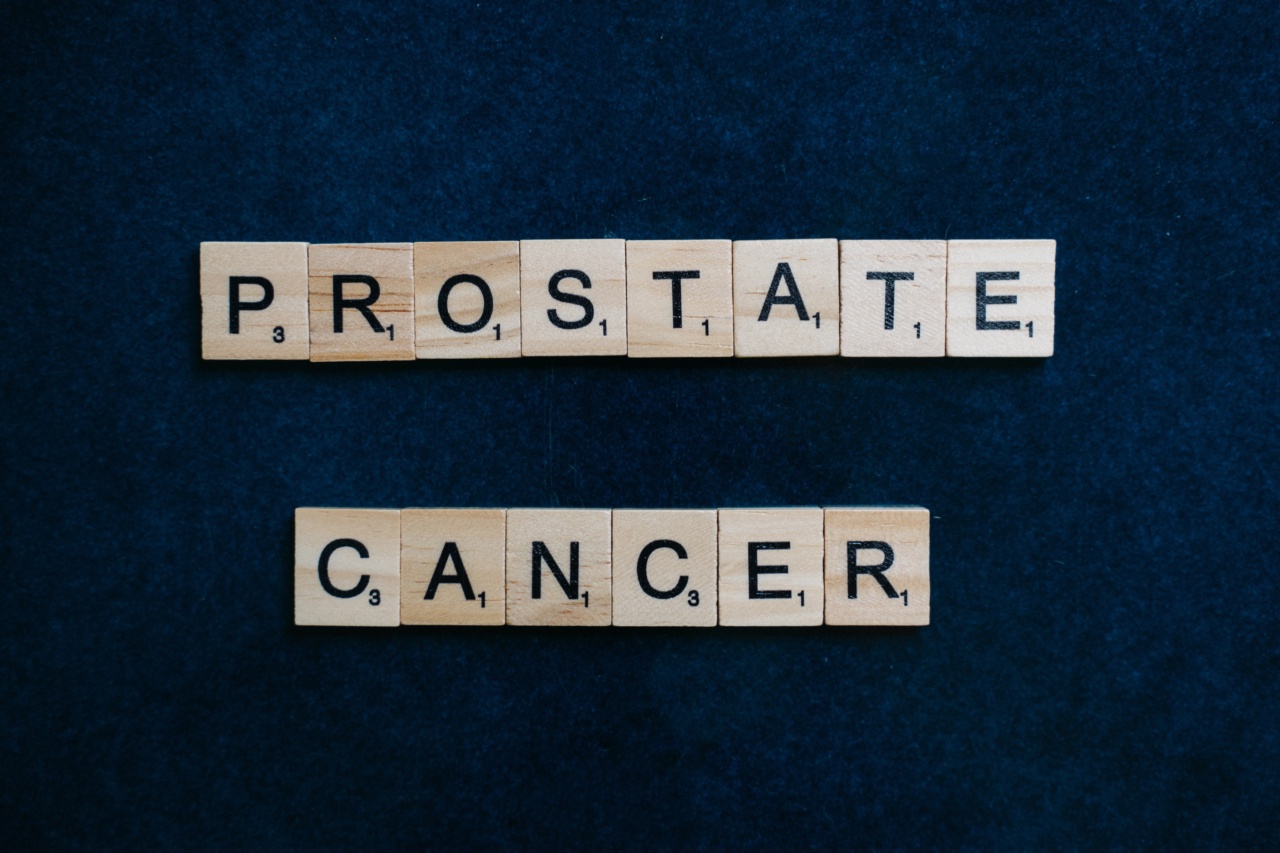Prostate cancer is one of the most common types of cancer that affects men. While age, genetics, and lifestyle factors play a role in the development of prostate cancer, diet can also significantly influence the risk.
Certain foods may increase the chances of developing prostate cancer or exacerbate its progression. In this article, we will explore ten foods that you should be cautious about when it comes to prostate health.
1. Red Meat
Studies suggest that a high consumption of red meat, such as beef, pork, and lamb, may increase the risk of prostate cancer. The heme iron, saturated fat, and potentially carcinogenic compounds found in red meat can promote cancer cell growth.
To reduce the risk, it is advisable to limit the intake of red meat and opt for leaner protein sources like fish, poultry, and plant-based proteins instead.
2. Dairy Products
While moderate consumption of dairy products can provide essential nutrients, excessive intake has been associated with an increased risk of prostate cancer. High-fat dairy products, in particular, have been linked to prostate cancer progression.
Choosing low-fat or fat-free dairy options and limiting their intake can help reduce the risk.
3. Processed Meats
Hot dogs, sausages, bacon, and other processed meats are often high in sodium, saturated fats, and preservatives. Studies have found that consuming processed meats regularly may elevate the risk of developing prostate cancer.
It is advisable to limit the intake of these foods and opt for healthier alternatives such as lean cuts of meat or plant-based protein sources.
4. Alcohol
Excessive alcohol consumption can be detrimental to overall health, and it has also been linked to an increased risk of prostate cancer.
Alcohol can interfere with the body’s hormonal balance and immune system, potentially promoting the development and progression of prostate cancer. Limiting alcohol intake or avoiding it altogether is advisable for maintaining prostate health.
5. Fried Foods
Foods that are deep-fried or cooked at high temperatures can produce harmful compounds, including acrylamide and polycyclic aromatic hydrocarbons (PAHs), which are potentially carcinogenic.
Regular consumption of fried foods has been associated with an increased risk of prostate cancer. Opting for healthier cooking methods like baking, grilling, or steaming can minimize the production of these harmful compounds.
6. Saturated Fats
A diet high in saturated fats, found in fatty meats, full-fat dairy products, and certain oils, may contribute to prostate cancer development and progression.
The excess calories from saturated fats can lead to obesity, which is a risk factor for prostate cancer. Choosing unsaturated fats, such as olive oil, avocados, and nuts, can be a healthier option for prostate health.
7. Sugary Beverages
Sugary beverages like soda and fruit juices often contain high levels of added sugars. These drinks can cause weight gain and contribute to the development of obesity, which is associated with an increased risk of prostate cancer.
Opting for water, herbal tea, or unsweetened beverages is a wiser choice for maintaining a healthy prostate.
8. Canned Foods
Canned foods, especially those with high sodium content, may pose a risk to prostate health. The lining of many cans contains bisphenol-A (BPA), which can disrupt hormone regulation and potentially contribute to the development of prostate cancer.
Opting for fresh or frozen foods or selecting BPA-free canned items is advisable.
9. High Calcium Foods
While calcium is an essential mineral for overall health, excessive intake from supplements or high-calcium foods may increase prostate cancer risk. Studies suggest that calcium supplements, particularly in large doses, can promote cancer cell growth.
It is important to maintain a balanced intake of calcium from dietary sources and consider discussing calcium supplements with a healthcare professional.
10. Refined Carbohydrates
Foods high in refined carbohydrates, including white bread, pasta, and pastries, can contribute to weight gain and obesity. Obesity is a known risk factor for prostate cancer.
Choosing whole grain alternatives like whole wheat bread, brown rice, and whole grain pasta can provide more fiber and nutrients, while reducing the risk associated with refined carbohydrates.



























